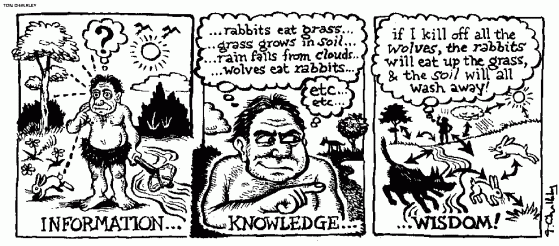Good and open communication results in an active and progressive organization.
Each employee can effectively communicate with one another, regardless of rank or position by focusing on one objective: the progress of the company he works with.

Admittedly, there are individuals who will keep information and data to themselves, for they are afraid of other people using these to be promoted in their position or their salary. Everyone in a company must remember that these information were obtained in the performance of one’s job and must be shared since it will be used for the function and advancement of the company.
The setback of keeping information to ourselves while we are a part of the organization is that there is a strong chance that what we hold maybe incomplete or with mistakes. It takes sharing, listening and comparing with others through honest communication that we will know the true value of what we know and possess and in turn have the opportunity to learn and gain more knowledge or even correct if we have mistakes that we do not realize. For example, somebody maybe proclaiming he has got the best performance in coming out with the maximum output for his department founded from the standard he set and based on the data that he gathered (production, field, sales or market data). His tendency is to reject any form of communication especially if he feels the information is very much different from his gathered data. This act is retrogressive and keeps the company blind in the true performance of the operation, of the field accomplishment, of the level of sales achievement.
Communication means submitting accurate, factual and meaningful reports on time. Everyone must do some analysis at all times if the report he submits is substantial, useful and is valid in relation to the level of performance of other industry players, competitors and the organization as a whole.

Communication means anyone should be ready to accept suggestions, criticisms, advice and ideas even if these are different from his own. It leads to additional learning, experience, and teamwork. One must not rest on the idea that he is right because he is more senior, more experienced, higher in position or was successfully doing his job and cannot try fresh ideas.
Communication means giving praises, encouragements, support and understanding. It builds trust and confidence.
Communication is listening. To listen is to be silent. One cannot listen if he talks at the same time with whom he is supposed to listen to, if he always insists on what he did or what he is in the company disregarding the talks or explanation of his colleague. It is in listening that others gain the feeling of belongingness and the listener erases his insecurities.
Start communicating now. You’re a part of the company; you’re a part of the family.
Unleash the information.
—-000—-
“Insight to what’s going on. Information keeps us strong. What you don’t know can hurt you bad. Take it from me you’ll be walkin around sad.” – Janet Jackson